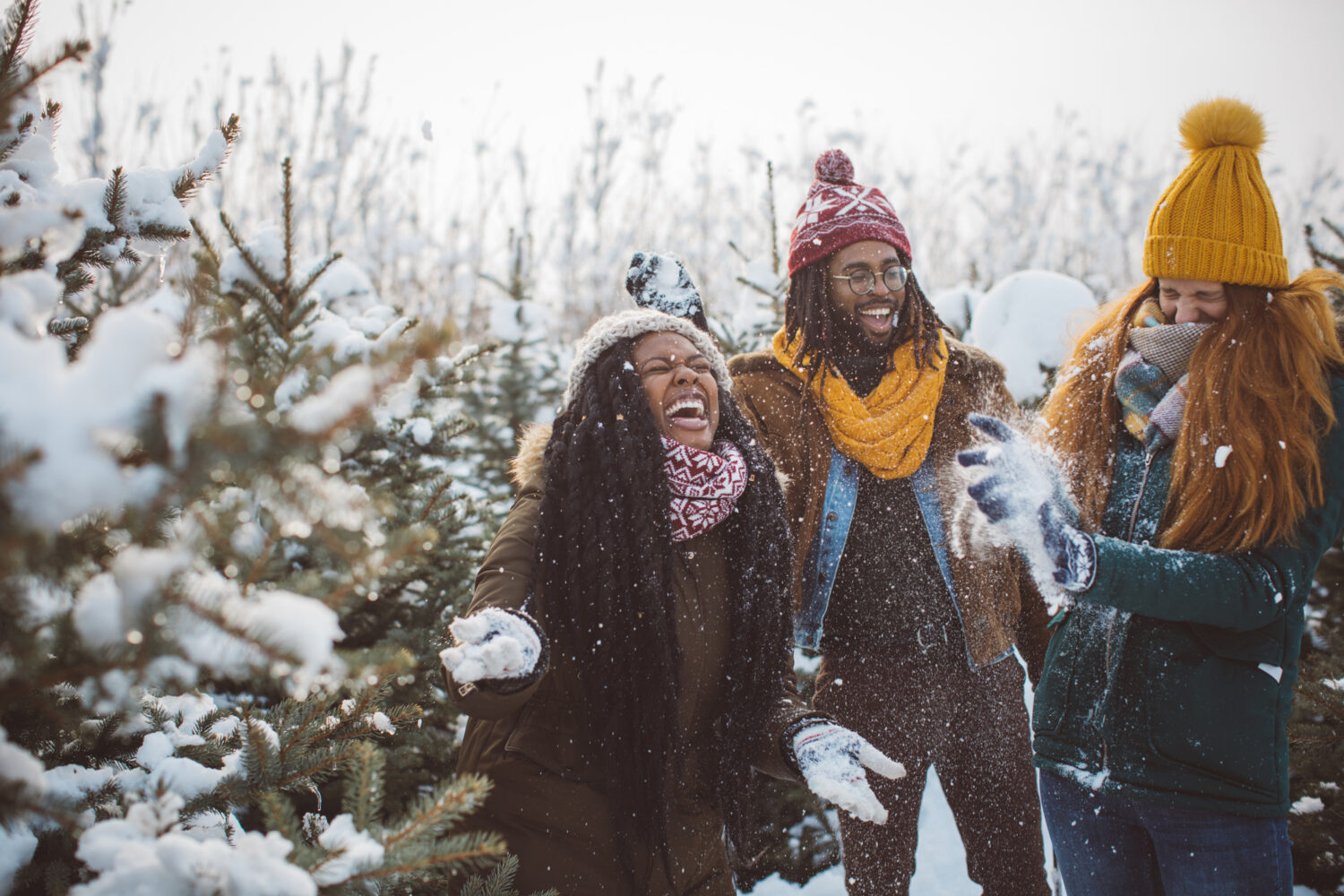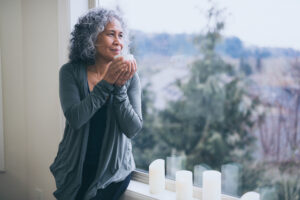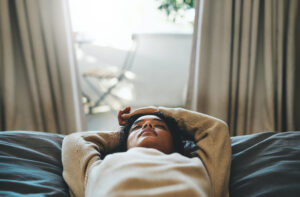Do splashy headlines grab your attention? Do you find yourself wanting to know what birds have to do with curiosity? Have you stared at a massive skyscraper with childlike wonder? If so, then you might be a curious person.
If you’ve used any of our programs like Unwinding Anxiety, Eat Right Now, or Craving to Quit, you’ve probably heard the word “curiosity” tossed around quite a bit. If you’ve never used Unwinding Anxiety or our other app programs, you might be wondering what curiosity has to do with anxiety… much less birds.
What is curiosity?
Let’s start with what curiosity is. Merriam-Webster’s dictionary defines curiosity as the “desire to know” and the “interest leading to inquiry.” How does that apply to anxiety?
The Unwinding Anxiety program teaches us to leverage what our brains and bodies already know how to do. That is, to incline more toward more nurturing behaviors and away from ones that are harmful. The way we do that is by learning what we get from our behaviors and how they affect us. And what’s the best way to learn something, whether it’s in a book, on television, or about ourselves? Curiosity.
You don’t have to force curiosity
But first, let’s take a quick step back. Have you ever tried to force yourself to learn or do something. How well does that work? More importantly, how does it feel to try to learn or do something that way?
Think back to a time when you had to memorize facts for an important test or when you first learned to ride a bike or drive a car. Notice how your body feels just by recalling those events. You may notice a physical sensation like tightness or just a feeling of “ughhhh.”
Now think of a time when you were truly interested in something. You weren’t trying to fix a problem or get an answer, but were simply present, immersing yourself in new information and sensations. Maybe you were walking in nature, hearing the birds sing, watching your children playing in the yard, or listening to your favorite music. When you recall what that is like, how does it feel in your body? Does it feel a little more open, more enjoyable?
What we are learning here is that there are two types of curiosity:
- Deprivation curiosity: we’re driven by the need for an answer.
- Interest curiosity: we don’t need an answer and the curiosity is not a means to an end; it’s more open-ended and exploratory.
Both types of curiosity are necessary and can be helpful for us in our lives. To change habits and reduce feelings of anxiety, we invite you to explore interest curiosity. Deprivation curiosity can help us learn about habit change, but interest curiosity helps us change habits.
Curiosity and the noting practice
When I was dealing with all-day, everyday anxiety and panic attacks, I was lucky enough to have the Unwinding Anxiety program come into my life. Before the program, I thought I was an anxious person and that was how my life was going to be. I assumed there was nothing I could do about it.
I was able to make use of interest curiosity by doing a practice I learned in Unwinding Anxiety. It’s called the noting practice.
We can think of the noting practice as the simple act of noticing one or more of the following things and labeling each for what it is:
- Our five senses: sight, sound, smell, taste, and touch
- Feelings
- Thoughts
Noting became an integral component of my work changing my relationship to anxiety. I got a break from the nightmare scenarios playing out in my head by seeing, feeling, and hearing what was truly happening in the moment. I could know that I was safely at home in my house. There was no convincing needed.
When I learned this practice, I noted a lot. Almost all day. It didn’t take long for me to feel that noticing my basic five senses felt better than worrying. I didn’t have to understand how this worked. It simply felt better and that was all my brain and body needed to know. I always find myself coming back to this quote, which we use a lot in our programs:
“The feeling body is more powerful than the thinking mind when it comes to habit change.”
After a few weeks of using the noting practice, I started to wake up differently. For a long time, I would wake up and get hit with a huge wave of adrenaline-fueled panic. Sometimes before I would go to bed, I would stay awake worrying about the next day—or the next decade. I was going to bed engaged in the habit of worry.
Noting the birds
Now, I began noting instead. I could hear the birds singing outside. This helped me know vividly and directly that I was safely lying in bed. If a worry thought popped into my awareness, I would simply note: “thinking.” Then, the thought was already gone before I could get dragged down the worry rabbit hole. Noting helped me relax, sleep better, and disrupt the habit loop of worry. Simply put, being aware that we are thinking gives us space from the contents of the thoughts.
With my noting practice in place, I would begin noting “hearing” when I’d wake up in the morning. I was amazed that my brain would choose noting as my first behavior of the day instead of worrying! Before I opened my eyes or even moved a muscle, I would lay there listening to the birds chirping and singing outside my window. What was even more interesting was that I didn’t necessarily find the sounds the birds were making to be pleasant. In fact, sometimes blue jays and crows can be downright annoying when they are sitting on the fire escape screaming right next to your head. What I found so pleasant was the behavior of simply listening to birds, only for the sake of hearing them chirp.
Listening to the birds invited me into a state of open and effortless receptive learning. I was learning that curiosity felt nice and worrying felt awful. Turns out, this was all my brain needed to know.
The more I allowed myself to “be” versus “do” when it came to my anxiety, the better I felt and the more I began leaving worry behind. I didn’t need to fix anxiety or make it go away. It easily felt better listening to the birds calling me home to myself than it did to worry myself away.
Join Unwinding Anxiety to learn how to step away from anxiety and into a joyful, present life of listening to the birds.


